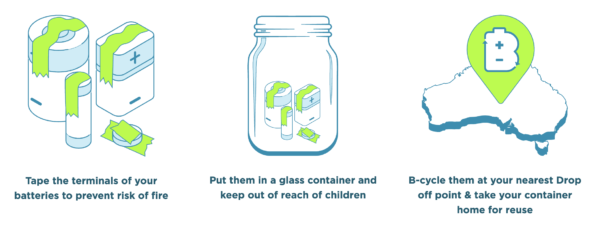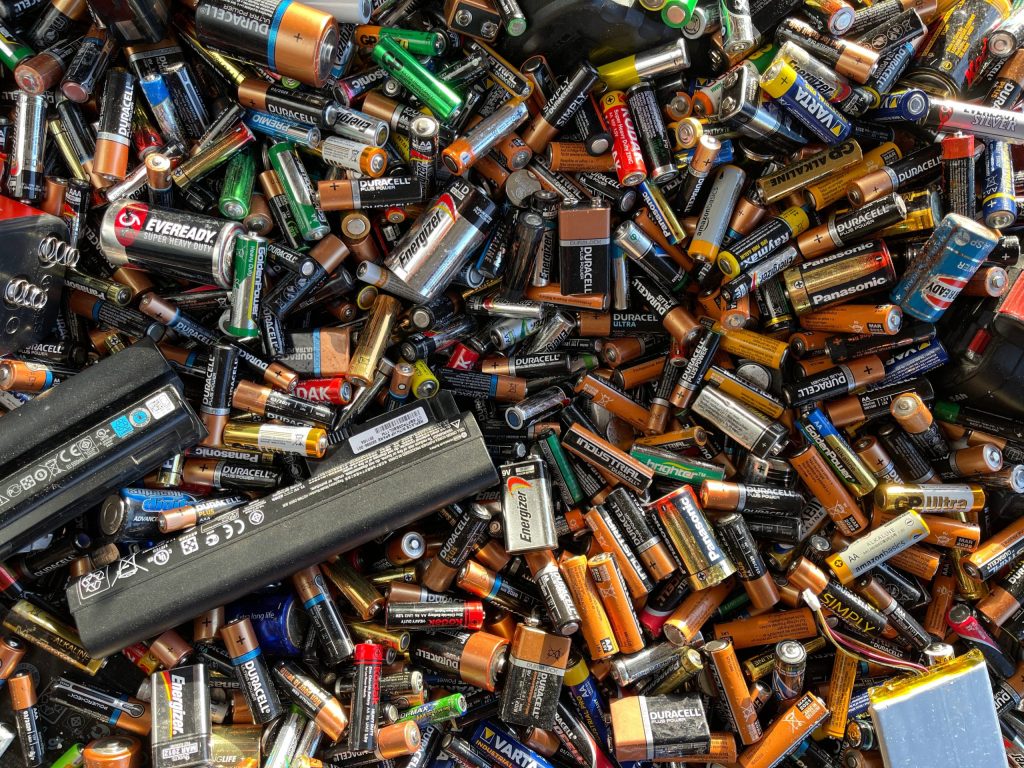Speaking at the B-cycle launch event this morning, Katharine Hole, CEO of the Australia Battery Recycling Initiative, said only around 10% of lithium, alkaline and other mixed household batteries in Australia actually get recycled, leaving a staggering 90% going to landfill.
The majority of batteries are, and have always been, recyclable, but without a convenient and nationally coordinated infrastructure scheme to collect them, they rarely make it to that stage.
From today though Australians will be able to drop their small household batteries at Woolworths, ALDI, Bunnings, Officeworks, as well as community organisations. Drop off locations at Coles will be added in the coming months.
While B-cycle is currently only targeting small batteries, the scheme is looking to expand to include batteries from electric vehicles and energy storage systems in future.

In total, B-cycle currently has 2,351 drop off points though the network is set to grow by an additional 1,200 points in the coming weeks. Australians looking for their nearest drop off point will be able to find it through the B-cycle website by typing in their postcode.
Libby Chaplin, who is heading up the scheme, described B-cycle not so much as a recycling service per se, but rather the network organising a circular system for Australian batteries.
While the program is supported by federal government funding, it is primarily being funded by a levy paid by battery importers. As part of the scheme, battery manufacturers will contribute 2 cents for every 24 grams of product (the weight of a typical AA battery) they sell in Australia.
B-cycle is currently a voluntary scheme, though Chaplin says all the major battery players in the Australian market have signed up.
For Michael Brendle, director of Battery Stewardship Council – the not-for-profit behind B-cycle, the scheme is about making it as easy as possible for Australians to recycle their batteries. He, and the rest of the B-cycle team, are looking to change consumer attitudes and make battery recycling a habitual practice.
This content is protected by copyright and may not be reused. If you want to cooperate with us and would like to reuse some of our content, please contact: editors@pv-magazine.com.









By submitting this form you agree to pv magazine using your data for the purposes of publishing your comment.
Your personal data will only be disclosed or otherwise transmitted to third parties for the purposes of spam filtering or if this is necessary for technical maintenance of the website. Any other transfer to third parties will not take place unless this is justified on the basis of applicable data protection regulations or if pv magazine is legally obliged to do so.
You may revoke this consent at any time with effect for the future, in which case your personal data will be deleted immediately. Otherwise, your data will be deleted if pv magazine has processed your request or the purpose of data storage is fulfilled.
Further information on data privacy can be found in our Data Protection Policy.